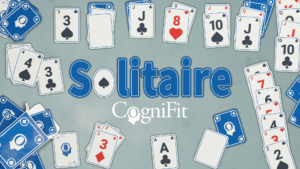
Cognitive Training and Its Impact on Working Memory: A Deep Dive into the Findings of a Recent Study
In the rapidly evolving field of cognitive science, the pursuit of enhancing mental capabilities through targeted interventions has garnered significant attention. A recent study, published in Frontiers in Psychology, delves into this area, focusing on the effects of cognitive training on working memory—a crucial aspect of cognitive function. This study’s insights are not just academically intriguing but also practically relevant, particularly for platforms like CogniFit, which are dedicated to cognitive assessment and training.

Understanding Working Memory: The Cognitive Cornerstone
Working memory is often described as the brain’s “workspace,” where information is temporarily held and manipulated to perform cognitive tasks. It plays a pivotal role in various higher-order functions, such as reasoning, decision-making, and learning. Given its importance, enhancing working memory could have broad implications, particularly for individuals with cognitive deficits or those seeking to boost their mental agility.
The Study at a Glance
The research article, titled “Working Memory Training in a Population of Healthy Older Adults: A Randomized Controlled Trial,” investigates the potential benefits of cognitive training on working memory. Conducted with a focus on older adults—a demographic often at risk for cognitive decline—the study’s randomized controlled trial design lends robustness to its findings.
Participants were divided into two groups: one engaged in an intensive cognitive training regimen designed to enhance working memory, while the other group received a control intervention. Over several weeks, the researchers assessed the participants’ working memory capabilities using a series of standardized tests.
Key Findings and Their Implications
The study yielded several key findings:
- Significant Improvement in Working Memory: Participants who underwent cognitive training showed a marked improvement in working memory performance compared to the control group. This improvement was particularly evident in tasks that required the manipulation of information, such as mental arithmetic and spatial reasoning exercises.
- Transfer Effects: Beyond working memory, the study observed transfer effects—where improvements in one cognitive domain influenced performance in another. For instance, participants exhibited better performance in tasks related to attention and executive function, suggesting that working memory training may have broader cognitive benefits.
- Sustained Benefits: One of the most encouraging aspects of the study was the longevity of the benefits. Follow-up assessments conducted several months after the training period revealed that the gains in working memory were largely retained, indicating that cognitive training can have lasting effects.
- Age-Related Insights: While the study focused on older adults, its findings have implications across age groups. The fact that significant improvements were observed in an older population—often considered less malleable in terms of cognitive function—suggests that cognitive training could be beneficial for individuals across the lifespan.
What This Means for Cognitive Training Platforms Like CogniFit

The findings of this study align well with the goals of CogniFit, which seeks to offer scientifically grounded cognitive training programs to enhance various aspects of mental function. Here are a few takeaways relevant to CogniFit’s mission:
- Validation of Cognitive Training Efficacy: The study provides empirical support for the effectiveness of cognitive training programs, particularly in improving working memory. This validation is crucial for platforms like CogniFit, which rely on scientific evidence to design and refine their training modules.
- Focus on Transfer Effects: The observation of transfer effects underscores the importance of developing training programs that do not just target a single cognitive domain but encourage holistic cognitive development. CogniFit’s platform could benefit from integrating exercises that foster such cross-domain improvements.
- Long-Term Engagement: The sustained benefits highlighted by the study suggest that long-term engagement with cognitive training programs can yield lasting results. For CogniFit, this means emphasizing the importance of continued participation in its training programs, even after initial improvements are observed.
- Inclusivity Across Age Groups: While the study focused on older adults, its implications extend to younger populations as well. CogniFit’s platform, which caters to a wide demographic, can leverage these findings to market its programs to users of all ages, emphasizing that cognitive training is beneficial regardless of one’s stage in life.
Conclusion: Bridging Science and Practice
The intersection of scientific research and practical application is where cognitive training platforms like CogniFit truly shine. The findings of the study published in Frontiers in Psychology not only bolster the credibility of cognitive training as an effective intervention for enhancing working memory but also provide actionable insights for the continued development of such programs. As the science of cognitive enhancement progresses, platforms like CogniFit are well-positioned to lead the way in bringing these advances to a broader audience, ultimately helping users of all ages unlock their full cognitive potential.





































